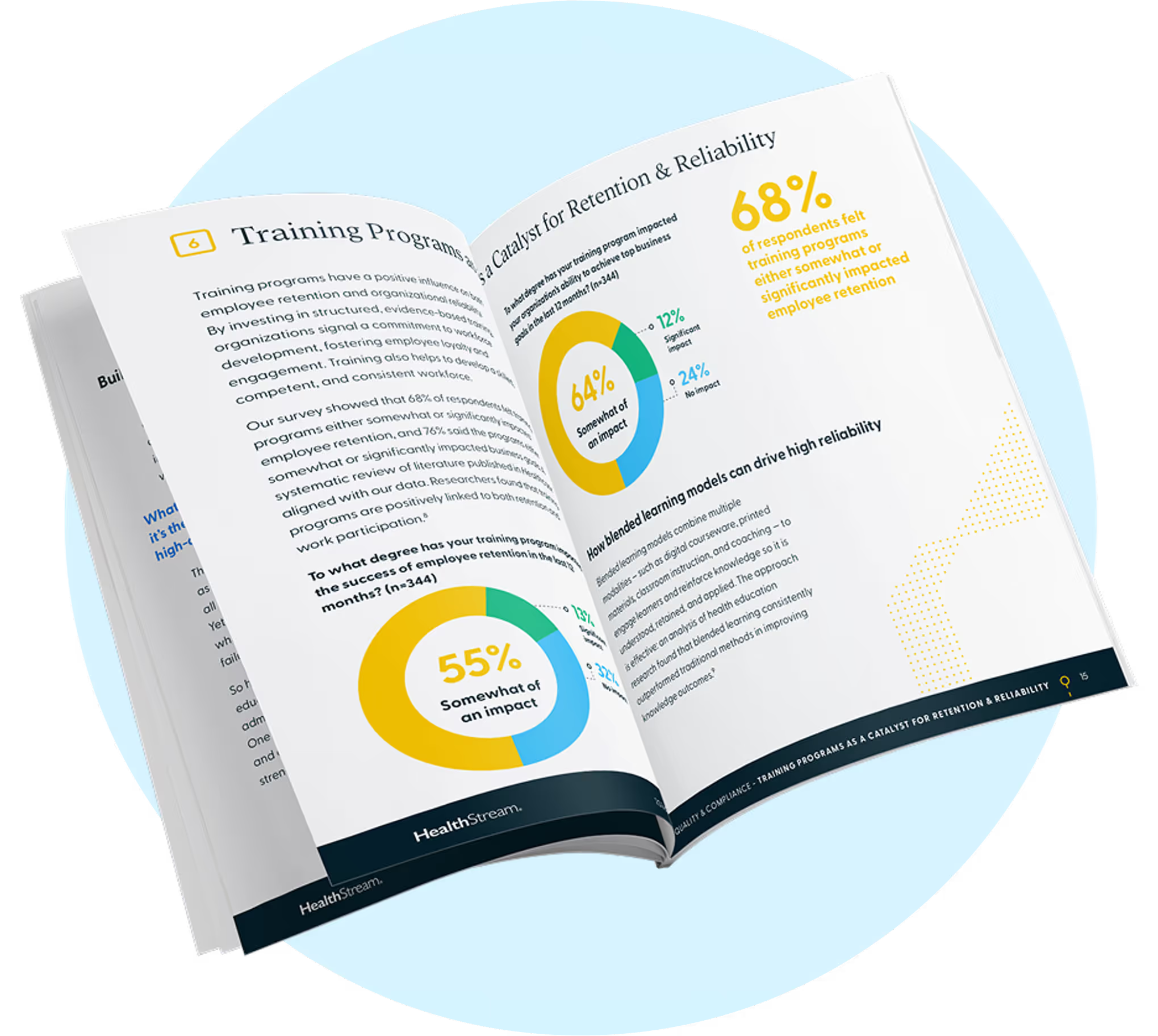Resources for the Healthcare Industry









Healthcare Interoperability Explained: What It Means and Why It Matters
Data is essential in modern healthcare. But when that data is trapped in silos— inaccessible by clinicians and patients who need it—it can create dangerous gaps in care. This is where healthcare interoperability comes in. Healthcare interoperability is a key requirement for a connected, efficient, and safe healthcare ecosystem. Without it, providers struggle to see the full picture of a patient's health, leading to redundant medical tests, medication errors, and delays in treatment. By enabling different systems to speak the same language, interoperability transforms fragmented data into actionable insights.









HealthStream Compliance Suite+: A systems approach to compliance, safety, and operations
Join HealthStream leaders for a panel discussion on how a systems approach to compliance can help healthcare organizations stay ahead of regulations while improving safety and operational efficiency. Learn how HealthStream Compliance Suite+ streamlines policy management, automates training, reduces vendor complexity, and equips teams with the tools needed to minimize risk and drive accountability across the organization.









2026 Trends in Quality and Compliance
Get actionable insights from survey data on the biggest quality, compliance, cybersecurity, AI, and workforce trends shaping healthcare in 2026 — plus strategies to strengthen safety and reliability.









Streamlining Nurse Staffing with ShiftWizard: Ensuring Compliance and Excellence in Patient Care
Join us for a 30-minute webinar to discover how ShiftWizard empowers nurses and nurse leaders to navigate these challenges with ease.









Best Practices in Obstetric Training for Safer Outcomes
This article will outline the best practices in obstetric training that directly lead to safer outcomes for mothers and newborns. We will explore the essential components of a program designed to empower clinical teams, reduce risk, and elevate the standard of care.









2026 Trends in Quality and Compliance Webinar Transcript
HealthStream released its 2026 Trends in Quality and Compliance report, which explores healthcare trends and challenges related to learner engagement, AI, cybersecurity, compliance, and leadership development. Our experts hosted a 35-minute webinar to discuss the report’s findings and explore how healthcare organizations can move beyond basic regulatory adherence to achieve high reliability.

Healthcare IT Workforce Trends to Watch in 2026

Nursing Workforce Trends to Watch in 2026

